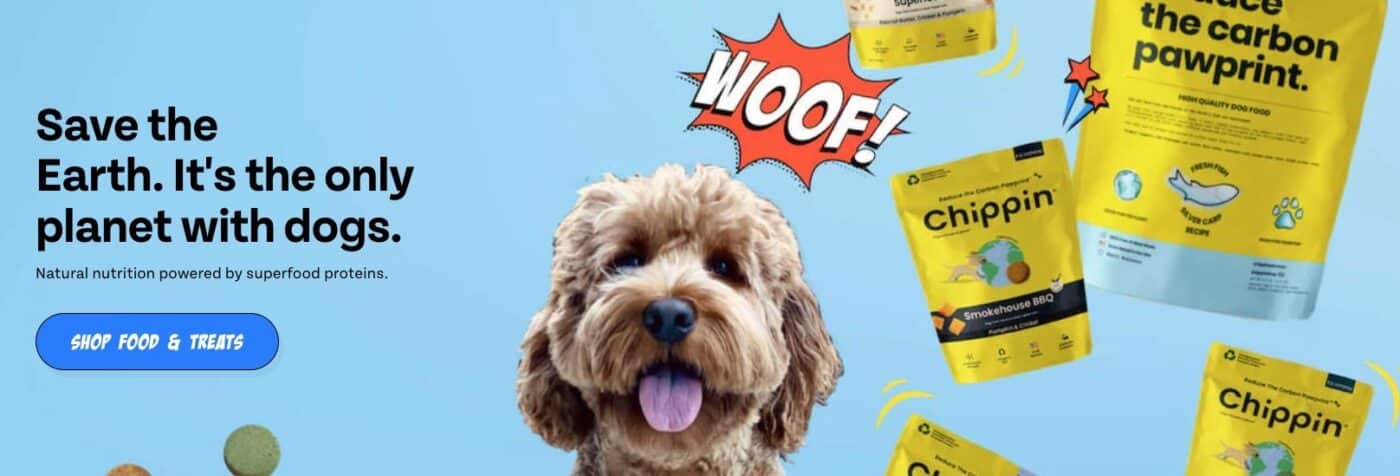No products in the cart.
Introduction
Choosing the right type of dog food can be confusing, especially if you’re unfamiliar with all the different types of dog food on the market. This article will discuss the difference between organic and inorganic dog food and why you might want to choose one or the other.
What is Organic Dog Food?
Organic food is made without synthetic chemicals, petroleum-based products or genetically modified organisms. It is also usually lower in fat and calories than conventional food. Because organic farming relies on natural processes, organic crops may contain more antioxidants and other nutrients than non-organic crops.
Organic dog food is also available. Organic dog food is the same as regular dog food, except that it must meet the same standards as organic human food to be labelled “organic.” This means that the ingredients must not have been treated with synthetic chemicals, petroleum-based products or genetically modified organisms.
What is Inorganic Dog Food?
Inorganic pet food is made with ground-up rocks, minerals, and other non-living materials. Its main advantage is that it’s considered a healthier option for your dog because it lacks additives and preservatives. However, some argue that inorganic pet food isn’t nutritionally complete for their pets.
Some brands of inorganic dog food include Canidae, Evo, and Wellness.
The Benefits of Feeding Organic Dog Food
Organic dog food is thought to offer many benefits over regular pet food. These benefits include:
1-Organic foods are typically higher in antioxidants, which may help reduce the risk of some types of cancer.
2-Organic foods are typically lower in chemicals and other toxins, which may make your dog healthier overall.
3-Some studies have shown that organic diets can help improve your dog’s coat, digestive system function, and overall health.
4-Organic foods cost more than regular pet foods, but some believe that the extra expense is worth your dog’s health.
5-It’s important to ensure that the organic food you choose is organic. Some brands use terms such as “organic,” “natural,” or “healthy” to mislead consumers.
6-Be sure to consult your veterinarian before switching your dog to an organic diet. They may have other recommendations for feeding your pet.
The Benefits of Feeding Inorganic Dog Food
Organic dog food is becoming more and more popular because of the many health benefits associated with feeding it. But what’s the difference between organic and inorganic dog food? Here are four key reasons why organic food is better for your pet:
1. It’s Higher Quality: Organic foods are often produced with fewer chemicals and pollutants, which means they’re healthier for you and your dog. Inorganic food can also contain harmful ingredients like artificial colours and flavours, which can be dangerous for your pet’s health.
2. It Supports Sustainable Agriculture: By choosing organic food, you’re helping support sustainable agriculture practices, which are important for preserving our environment. Organic farming practices use less water, fertilizer, and pesticides, which can positively impact the environment.
3. It May Prevent Allergies: Feeding your dog organic food may help reduce the risk of developing allergies. Many people who own dogs suffer from allergies, so they know how important it is to keep their pets healthy by providing them with a good diet.
4. It’s Better For The Dog’s Health: Feeding your dog organic food not only supports their health as an individual but also helps protect the environment. Inorganic food can contain harmful chemicals and pollutants that can harm the environment and your pet’s health.
Whether you choose to feed your dog organic or inorganic food is ultimately up to you and your individual circumstances. But whichever food you choose, keep your dog’s health and top wellbeing priority.
The Benefits of Organically Grown Foods for Your Dog
Organic food has long been associated with better health for humans and their pets. But what are the specific benefits of feeding your dog organic food? Here are five reasons:
1. Organic foods are pesticide-free.
2. Organic foods are less likely to contain harmful additives or contaminants.
3. Organic foods are processed using more natural methods, resulting in a healthier taste for your dog.
4. Organic produce is usually lower in calories and may provide more nutrients than conventional foods.
5. Some organic ingredients (such as meat and dairy) come from animals fed organically grown feed without antibiotics or other drugs.
Ultimately, it’s up to you as the owner to decide which foods are best for your furry friend. However, choosing organic foods can help ensure that your dog receives the best possible care.
The Disadvantages of Inorganic Dog Food
Inorganic dog food can be cheaper, but it has a few disadvantages. One is that it can contain more chemicals and toxins than organic food, which can harm your dog’s health. Additionally, the nutrients in inorganic foods are often derived from synthetic sources, which can be less effective than feeding your dog foods that are naturally fortified with essential vitamins and minerals.
Overall, inorganic food is cheaper, but it may not be as nutritionally complete or beneficial for your dog as organic food.
Conclusion
There’s a lot of debate about the benefits and disadvantages of feeding your dog organic vs. inorganic food. Some people swear by the health benefits of feeding their pup organic food, while others say it just doesn’t make sense financially. I think it’s important to do your research before deciding what kind of food is best for your pet, but at the end of the day, you should always choose what feels best for them.


